Casey Williams: Scout Motors is the new EV truck maker that even Elvis would recognize
Published in Business News
Sitting in an upstairs corner of the Auburn Cord Duesenberg Museum in Auburn, Indiana, is a 1979 prototype for an International Scout — a popular SUV that once competed with the Ford Bronco and Chevy Blazer. This handsome vehicle, powered in its prime by a 162-horsepower V-8, was canceled more than 40 years ago as the troubled International Harvester Co. refocused on commercial trucks.
“Over 20 years, 532,673 Scout models rolled off the production line in Fort Wayne, with the last unit produced on October 21, 1980,” said Larry Webster, senior vice president of media and editorial for Hagerty, the automotive lifestyle and insurance company. “It became a proof point that Americans were receptive to SUVs, a segment which has become the most popular among car buyers.”
Fans of this historic vehicle, take heart: In 2025, the Scout rises again.
Trucks carried us here. International Harvester became Navistar, which was acquired by the Volkswagen Group in 2021, and now it's called International Motors, LLC, the parent company of Scout Motors, which is bringing the Scout back to life.
With Rivian, Hummer, Tesla, Ford, Ram and GM vying for EV truck supremacy, it was time to resurrect Scout as an all-EV brand … and create 4,000 jobs at a gleaming new South Carolina plant.
“Scout is an iconic American brand with a rich heritage,” said Kathy Graham, integrated communications manager at Scout Motors. “Scout was the original ‘eight-day-a-week’ vehicle, a companion for its owners to get work done, explore and connect with the people in their lives.”
The original Scout, sold from 1961 to 1980, carried kids to school and families camping. Snow was but a minor nuisance. It blazed a trail for an entire segment, becoming renowned for durability and versatility by owners as diverse as Farmer Brown and Elvis Presley.
It’s a heritage Scout hopes to recapture.
Designers swept digital lines that connect today’s Scout with yesterday’s. They re-imagined the later Scout II’s square face, slab sides and (on SUVs) upturned rear window lines. A split hatch/tailgate with tire hung outside echoes the original, too. Inside, it’s all fresh with twin flatscreens plus contrasting leather, plaid accents and cursive Scout logos.
“Visually, it appears to be a well thought out, modernized homage to the original Scout models, especially the shape of the front end and grille,” Webster said. “The classic styling influence differentiates it from the crowd of modern EVs.”
Unlike the original Scout that was available with four-cylinder, turbo-four V-6 and diesel engines, the revival Scout is electric. Base models offer 350 miles range, but Scout will offer a 500-mile version with a gas-powered generator. Dubbed the “Harvester,” the EREV (extended range electric vehicle) system is an EV with insurance. A small combustion engine recharges batteries to keep trucking.
Scout will debut with the Traveler SUV and Terra pickup. Both models are body-on-frame with solid rear axles and front/rear mechanical lockers for traction. The platform allows up to three feet of water fording and tows up to 10,000 pounds. With 1,000 pound-feet of torque, the four-wheel-drive system snatches 0-60 mph in 3.5 seconds. Classic Scouts took as long as 18 seconds to reach that speed.
Scouts will innovate in other ways too. Both include frunks for luggage plus 120v and USB-C power outlets. The Terra adds an optional front-row bench seat, 5.5-foot bed and 240v outlet for powering tools or appliances. Owners can add auxiliary lighting, assist steps, off-road bumpers and a heavy-duty winch.
Scout’s purchasing experience promises innovation equal to its vehicles.
“As an independent American company and startup, we’re building everything from the ground up — our teams, our factory, our vehicles and now our own customer experience that is powered by an exclusive Scout Motors retail network,” Graham said.
This apparently is what today’s drivers want.
“We listened to consumers, and as a result Scout Motors will establish a one-to-one relationship with our customers, rooted in trust and transparency, by selling and servicing Scout vehicles directly from Scout Motors,” Graham said. “From reservations and vehicle sales to delivery and service, we will support our customers directly.”
Seems good, but this path faces legal hurdles.
As reported by Hagerty in December, the California New Car Dealers Association asked Scout to stop taking deposits. It asserts that direct sales by a Volkswagen-owned entity violates California’s vehicle code. In essence, it claims that Scout cuts VW dealers out of sales opportunities. In a separate article by Automotive News, VW stressed that Scout Motors operates independently. Letters are flying. We’ll see what happens.
Alabama, Kansas, South Carolina and Texas also ban direct sales.
Scout may be owned by Germany’s Volkswagen, but its vehicles are designed and built in America. They will be designed near Detroit and assembled in Blythewood, South Carolina, beginning in 2027.
“South Carolina has a successful track record in advanced manufacturing,” Graham said. “Boeing, BMW, Mercedes-Benz, Michelin and dozens of automotive suppliers call South Carolina home, and we’re proud to join them.”
Yet it’s the company’s partnership with EV maker Rivian that could be its biggest asset. Volkswagen invested $5 billion in Rivian to cement the partnership. Scout can learn from Rivian’s EV truck expertise and also share costs, such as for developing shared electronic architecture.
“Our Scout Motors vehicles will be among the first to use the new zonal architecture built by the Volkswagen Group-Rivian joint venture,” Graham said. “The software will enable over-the-air updates; remote diagnostics; quick, responsive features; and enhanced lifetime value for the customer.”
No matter how good the Scouts will be, they’ll face formidable competition. The Traveler SUV compares to the Rivian R1S, GMC Hummer and Jeep Wagoneer S, while the Terra pickup matches up against the Chevy Silverado, Ford F-150 Lightning, Rivian R1T, Tesla Cybertruck, GMC Hummer and Ram EV.
Channeling legit heritage could even spark renewed interest in the classics.
“Nostalgia drives a lot of enthusiast car purchases,” Webster said. “It’s all about emotions. There are certainly older generations who have a sentiment toward the brand, but thanks to the original styling cues, we also expect interest from younger buyers.”
Hagerty’s survey found that nearly half of the respondents noted an interest in owning a classic car, and 38% of those surveyed prefer SUVs.
Elvis bought his Scout, currently on display at Graceland, in late 1973. If he were alive today, the King would surely zip off a check for a new one. You may too. Both models are expected to start under $60,000 — possibly closer to $50,000 with incentives. Make reservations now at www.scoutmotors.com.
©2025 Tribune Content Agency, LLC
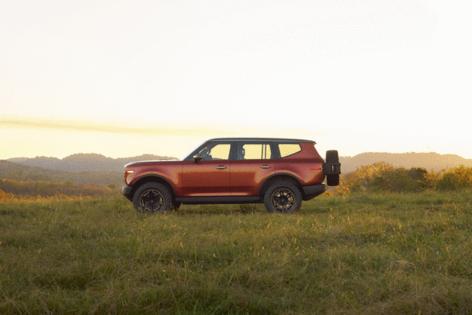
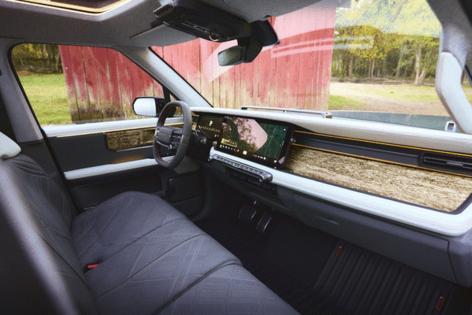
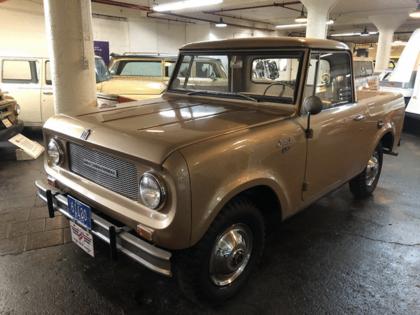
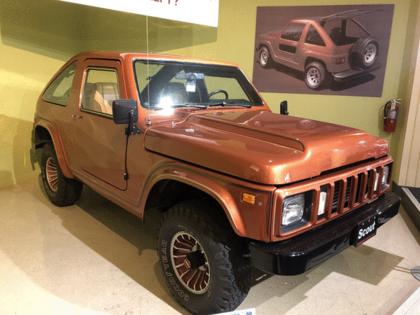
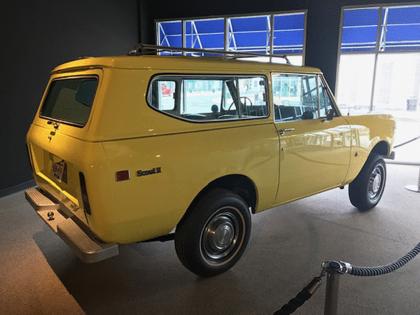
















Comments